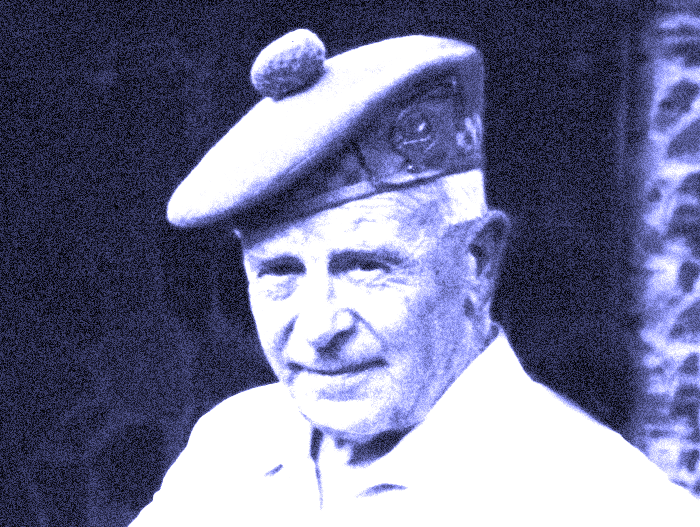
We conclude the report from the special edition of the South Australian Pipe Band Association Newsletter which outlined RU Brown’s 1972 tour of South Australia and Tasmania, his teaching, his recitals and his illness and death. This excerpt contains touching details from air hostess Helen Aitkenhead who cared for P/M Brown on his final journey home……
Pipe Major Robert U Brown flew from Melbourne to Sydney where I joined him. We then departed Sydney on Qantas flight QF530 at 1900 hours bound for London via the United States of America.
I had, prior to departure, arranged through Qantas for cables to be sent to each port of call notifying them of the Pipe Major’s illness [thrombosis in the leg]. This precaution was taken so that a wheelchair would be on hand if required.
During the flight I spoke to each joining crew. They in turn ensured that Pipe Major Brown was made comfortable and did all they possibly could for him.
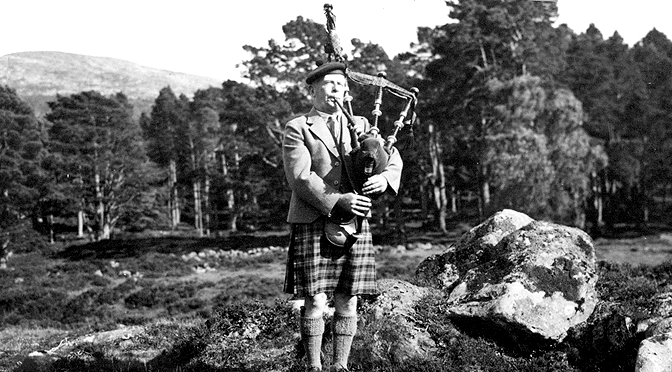
During the 36 hour flight to London the Pipe Major was able to keep his legs stretched across three seats. This kept the swelling in his legs down and enabled him to sleep for most of the journey.
We had a change of aircraft in San Francisco (from 747 to 707). Arrangements were made by the ground staff for all passengers to be placed in a hotel until the second aircraft was ready for embarkation.
Pipe Major Brown was transported in a wheelchair to the hotel and given a room in which to sleep.
On arrival in London the Pipe Major was tired but happy to think he was almost home. Because of the late arrival hour (21.25) we stayed overnight in London at a hotel near Heathrow Airport.
We then departed on BEA [British European Airways] the following morning (Friday, 21st April) for Aberdeen. BEA had also arranged for a wheelchair to be made available. Mrs Brown and family were waiting at Dyce Airport, Aberdeen, when we arrived.
The Pipe Major was driven home to Balmoral and I stayed overnightin Aberdeen with the Pipe Major’s daughter. I left the follwoing morning for Edinburgh.
Scroll through some pictures of RU Brown at the Games
I received the news that Pipe Major Brown had passed away on Tuesday 25th April, 1972. Confirmation of this was given by his daughter when I phoned Aberdeen.
She told me that the Pipe Major had walked down the stairs of his home on Monday afternoon 24th April. He told his wife he felt unsteady and faint. She placed him on a couch and minutes later he died. The doctors who attended him said he died from a blood clot on the lung.
I immediately left for Aberdeen to attend the funeral. His death was a great blow to his family as they had stayed with him the preceding weekend and he had looked so well.
I attended the funeral service for Pipe Major Brown on Thursday 27th April at Crathie Church, Balmoral. The PIpe Major was buried in Crathie Cemetery.
His old friend and fellow piper from Balmoral, Pipe Major Nicol, played Lament for Donald Ban MacCrimmon at his graveside.
His funeral was attended by over 400 people from all over Scotland. This, in itself, I felt showed how much love and respect people had for this great man. His untimely death caused shock and sadness.
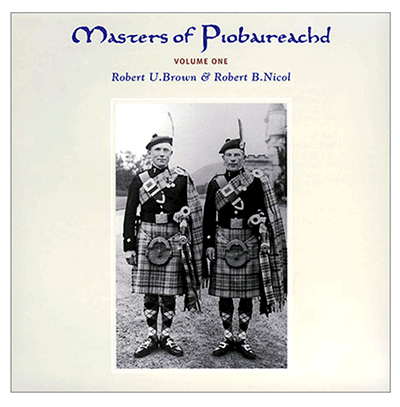
- Though half a century has passed since his demise, P/M RU Brown is still considered one of the great tradition bearers of classical pipe music, ceòl mòr. A student of John MacDonald of Inverness, his teaching legacy lives on through the series of ‘Masters of Piobaireachd’ CDs produced by Robert Wallace and Norman Matheson and also in the recordings and writings of the late Jimmy McIntosh one of his many outstanding pupils. Jimmy’s lessons are now available on the Piobaireachd Society website.











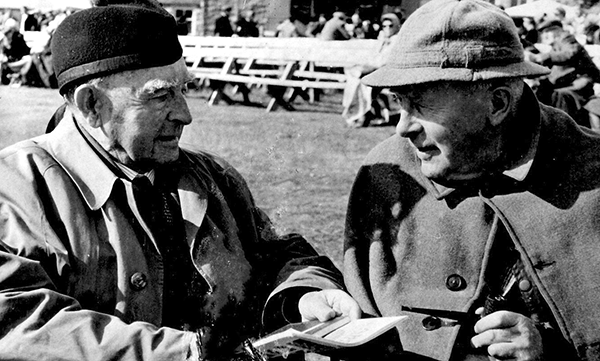
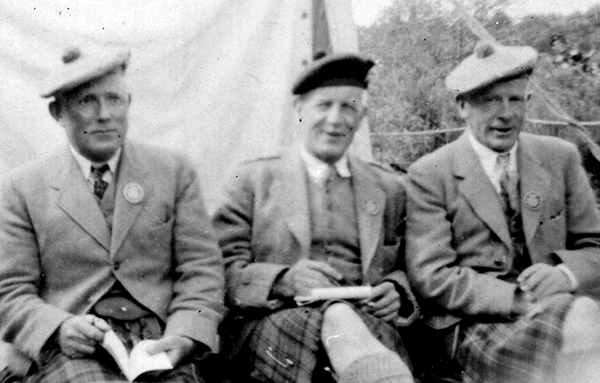
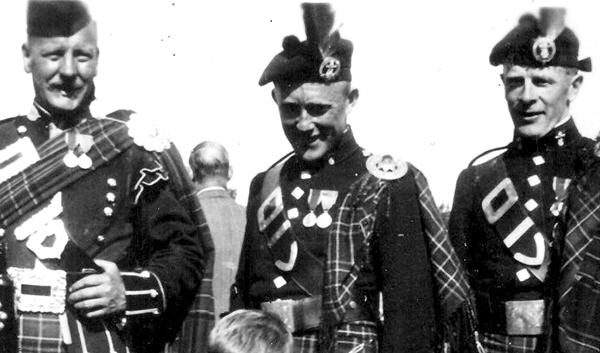
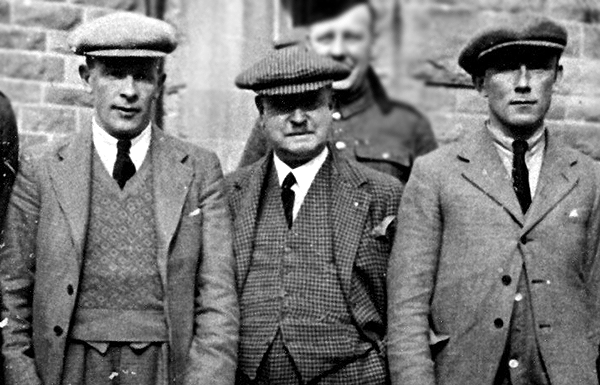
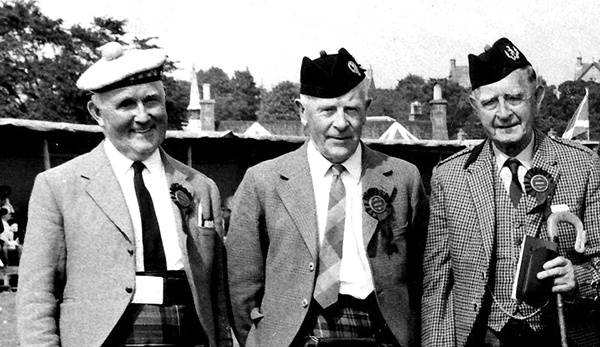





it might of interest, I omitted to include that Bob Nicol played Lament for Donald Ban MacCrimmon at the graveside of John MacDonald (Inverness) in 1953, 19 years earlier. The tune was held in great reverence. Pipe Major James MacGregor, who had been a pupil of Bob Nicol, later played the tune at the funeral of Bob Nicol. I continued this when I played the piece at the funeral of Norman Meldrum who had been a pupil of Bob Brown, attending him for about 26 years. It was almost a tradition to play the tune on those occasions.
This sparked memories from 50 years ago. I attended the funeral of Bob Brown. It was well attended by locals and pipers from further afield. I had got a lift to Crathie from the late John Stewart who was a pupil of Bob’s. My association with Bob Brown was in meeting him at the north east Highland games as opposed to going to him for lessons. It was the other Bob, Bob Nicol, that I went to. At the Games when the Bobs were present and judging there was often sage advice about the way tunes might be played. It was quite informal and occasionally they did explain some alternatives, with their preferences they had learned from John MacDonald (Inverness). At that time old Angus MacPherson was still with us and for me these conversations were probably more important than participating in the competitions. They added to the pleasant atmosphere at the games back then. Being a raw young person in my early twenties, I was in awe of those men. The passing of Bob Brown was a great loss to the family and also Bob Nicol, who together spoke with one voice regarding piobaireachd. Additionally for pipers who knew Bob Brown part of the magic of Deeside was lost with his passing. At the graveside Bob Nicol played an extract of Lament for Donald Ban MacCrimmon, the first variation of the piece. Among the mourners was Pipe Major Donald MacLeod and he later described the playing of the variation as an object lesson of the playing of the tune with the delicate, well phrased timing. From memory others present were John MacDougall Snr and Jnr, who was of course a long time pupil of Bob Brown, Jimmy McGregor, Jimmy McIntosh, Norman Matheson and many others who have since passed on. I had learned of the passing of Bob when visiting Bob Nicol, I think the day following the bereavement; and it was difficult to contemplate. Bob Nicol had spoken of the both of them committing their playing to written scores to be accompanied with recordings which at that time was in its infancy. Thankfully, with the The Masters of Piobaireachd CD series, produced by Norman Matheson and Robert Wallace, the essence of their learning and teaching was not lost.